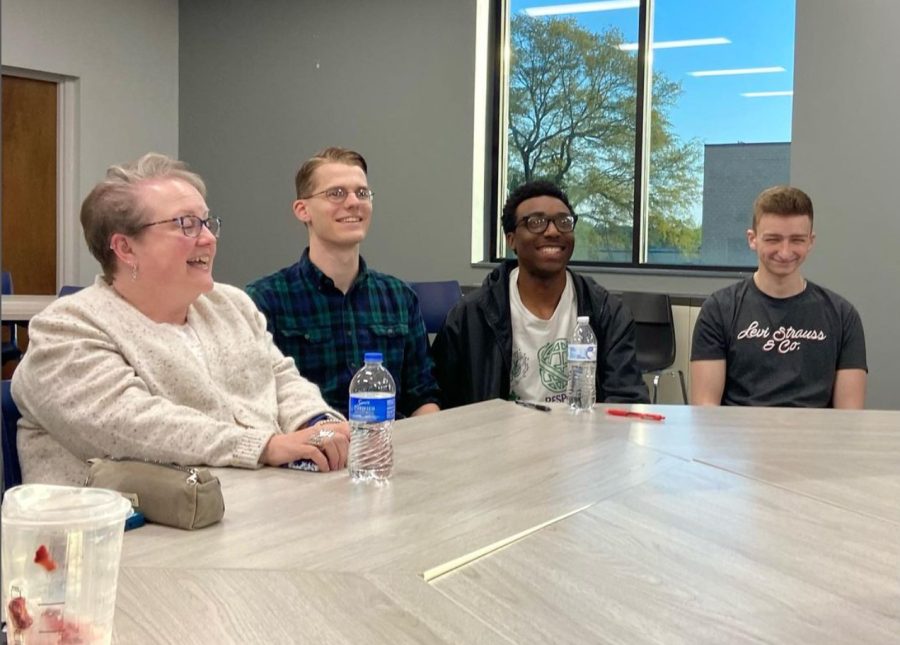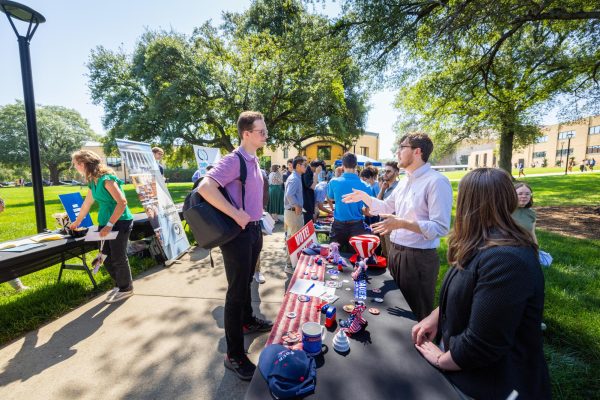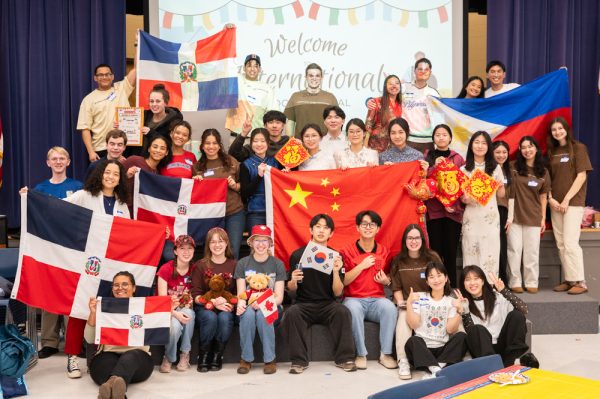METES event explores organization’s purpose
Minorities Empowered to Educate and Serve (METES) is open to students from all backgrounds, not just minorities.
“Why does BJU need a student organization that focuses on minority ethnicities?” Bob Jones University’s Minorities Empowered to Educate and Serve organization addressed this question in a March 30 forum. About 15 students, faculty and staff formed a simple circle of chairs in a classroom to share their perspectives and experiences.
Student support
Alaura Fleishman, Grace Harris and Lianna Stewart are current students at BJU. They share the experience of being adopted from China by white American families. All three students discussed the complexities of having a “culturally white” but ethnically Asian background.
“Until I came to college, I had never seen so many Chinese people in one place,” Fleishman said. She encouraged her peers to learn new languages, get outside the bubbles they grew up in and “reach people where they are.”
Harris teared up talking about insensitive and hurtful comments she and her sister Abigail, also adopted from China, have faced. During the Covid pandemic, some people she knew questioned her loyalty to the U.S., she said. Harris sees value in METES’ constructive conversations because “we as Christians have work to do,” she said. She wants to ensure that believers of all ethnic backgrounds feel accepted at their schools, churches and other environments.
Stewart shared her experience of having her Chinese background and chronic health issues that set her apart as different among her peers growing up. Before coming to BJU, she said, “I saw no one like me.” Now, she enjoys friendships with many students from minority backgrounds.
Growth experiences
Brenda Schoolfield, chair of the Division of History, Government and Social Science at BJU, said METES is “rescuing us from the danger of a single story,” referencing a TED Talk by Nigerian novelist Chimamanda Ngozi Adichie that has been viewed more than 11 million times. Schoolfield noted the lingering presence of discriminatory views, as 38% of South Carolinians voted to keep anti-miscegenation language in the state constitution in a 1998 referendum. Miscegenation is a term that generally refers to the marriages of whites to members of other ethnic groups.
METES secretary Abigail Bergmann discussed how race was an uncomfortable topic to discuss among her extended family during her growing up years. She talked about the harm of being uneducated about other cultures and ethnicities. “We have a duty to be educated,” she said. She sees the organization as supporting global missions, breaking barriers and fostering unity among diverse believers. “We’re all Christians…that’s what unites us,” she said.
Esther Salinas, an alumna and member of the teacher education faculty at BJU, said curiosity motivated her to attend the event. She is from California and brings years of experience in multicultural ministry to her role at BJU. “We do share that one identity in Christ,” she said.
Autumn Hicks, a sophomore English education major, is from “really rural” New Hampshire, an area that doesn’t experience significant ethnic diversity. She appreciates METES and encouraged her peers to take the posture of learners.
Community Service
Johnny Pierre, president of METES and incoming student body president at BJU, talked about the impact of METES’ mentorship program and partnership with the Black Student Union at Wade Hampton High School. He said that the presence of BJU students means a lot to the high school students. He mentioned events METES is planning for next semester, including visiting Wade Hampton High and hosting more roundtable discussions.
Tim Hunter works for Aramark, the company that services the dining common at BJU. He grew up in the Greenville area and is passionate about community service and the shared values believers have in the Lord.
METES Events Coordinator Josiah Roselle talked about the beginnings of the organization. It was founded in October 2020, just months after the killing of George Floyd. Johnny Pierre said he was concerned the group would be “BLM on campus,” but quickly learned that METES was very different. METES seeks to address racial issues in a thoroughly Christian way, emphasizing unity in Christ while strengthening cross-cultural relationships.
BJU’s history
Hunter shared his perspective as an African American on the past interracial dating ban. “I didn’t think it was right,” he said. However, to reflect Christ’s love, he didn’t “demonize” BJU, in his words. Hunter said he wants to learn more and help the University. As fellow Christians, he said, “We’re not haters. We’re lovers, like Jesus.”
Sarah Gothard, an alumna and member of the computer science faculty at BJU, remembered how she felt when the University removed its controversial interracial dating ban in 2000. “I was so happy,” she said. She mentioned that as a young person, she heard some people argue against interracial marriage, claiming that biblical passages such as Genesis 11 and Acts 17:26 supported their view.
Schoolfield commented on BJU’s past policies: “This has never been a perfect place. This has always been a place that needed to grow and change.” She wants to help support METES because “college should be the place where you learn empathy,” she said.
METES vice president Naryan Parimi said, “I was pretty excited because I thought the University needed something like METES.” Parimi noted that his heritage — his father is of Indian descent and his mother is white — would have put him in an awkward position had he attended the school under the old policy. Parimi and others mentioned how uncomfortable mixed individuals attending BJU under the policy felt when they were required to choose an ethnic or racial identity for dating. Though he is graduating, Parimi plans to continue supporting METES and said it feels like a home to him.
Johnny Pierre closed the meeting by reading from Jude 20-23 and praying for the attendees. He is excited about the future of the organization as they seek to honor Christ and bless the student body and Greenville community.































































